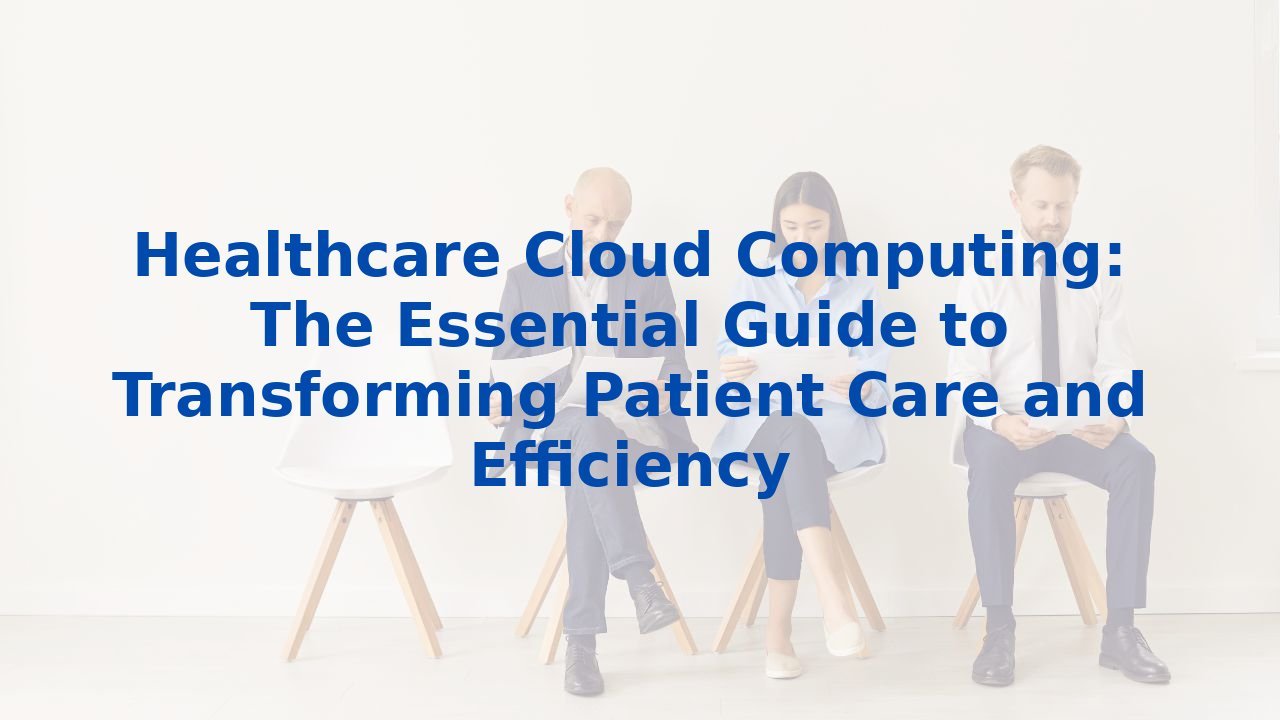Healthcare Cloud Computing: The Essential Guide to Transforming Patient Care and Efficiency
Healthcare Cloud Computing: The Essential Guide to Transforming Patient Care and Efficiency
The healthcare landscape is witnessing an extraordinary shift, driven by the infusion of cloud computing and artificial intelligence (AI). These innovations are not just trendy buzzwords; they are pivotal components reshaping how patient care is delivered and how healthcare organizations operate.
Understanding Cloud Computing in Healthcare
Cloud computing has become the backbone of contemporary healthcare systems, enabling organizations to manage immense datasets efficiently. It embodies flexibility, scalability, and enhanced accessibility, fundamentally changing the way healthcare providers interact with patient information.
Benefits of Cloud Computing
What makes cloud computing particularly transformative are its numerous advantages:
- Scalability and Flexibility: Healthcare organizations can swiftly adjust their IT infrastructure to accommodate the growing demands of patient care.
- Cost-Effectiveness: Transitioning to cloud solutions minimizes capital expenditures and operational burdens associated with on-premises infrastructure.
- Improved Accessibility: Secure cloud-based solutions facilitate reliable access to critical data from anywhere, promoting better collaboration among medical teams.
- Enhanced Security: Leading cloud providers implement robust security measures to safeguard sensitive patient information, ensuring compliance with regulations.
The Transformative Role of AI in Healthcare
Just as cloud computing revolutionizes data storage and access, AI is setting new standards for patient care through the automation of routine tasks and the provision of diagnostic support. The impact of AI extends well beyond efficiency; it fundamentally enhances patient outcomes.
Applications of AI in Healthcare
Here are several key applications showcasing AI's role in healthcare:
- Predictive Analytics: By analyzing patient data, AI can foresee outcomes and identify high-risk patients, which significantly lowers hospital readmissions.
- Clinical Decision Support: AI systems provide healthcare professionals with real-time insights, leading to improved diagnoses and treatment strategies.
- Personalized Medicine: AI allows for tailored treatment plans that consider patients' genetic backgrounds and health histories, maximizing the effectiveness of interventions.
- Administrative Automation: Tasks like billing, scheduling, and patient data entry can be automated, allowing healthcare professionals to devote more time to patient-facing activities.
Benefits of AI for Enhancing Efficiency
The integration of AI in healthcare processes yields significant efficiencies:
- Enhanced Accuracy: With AI reducing the potential for human error, diagnoses and treatments become more reliable and precise.
- Increased Productivity: Automating routine tasks allows healthcare personnel to concentrate on complex cases, ultimately elevating the quality of care delivered.
- Improved Patient Outcomes: Leveraging AI insights enables timely interventions, steering treatment towards better results.
- Cost Savings: AI-driven optimization of resources can cut costs, reducing waste and avoiding unnecessary procedures.
The Crucial Need for Employee Training
As we enmesh AI deeper into healthcare operations, the importance of adequate training for healthcare professionals cannot be overstated. To maximize the potential of AI in healthcare, employee education should focus on several critical areas:
- AI Literacy: Understanding the capabilities and limitations of AI tools is vital for effective application in clinical settings.
- Ethical Usage: Fostering awareness around data privacy, security, and ethical AI applications is crucial for maintaining trust in healthcare services.
- Prompt Engineering: Equipping staff with skills to formulate effective queries will ensure they receive the most accurate and relevant AI insights.
- Evaluative Judgment: Training employees to appraise AI-generated insights critically helps ensure alignment with clinical best practices.
Conclusion
In conclusion, the collaboration between cloud computing and artificial intelligence is setting a promising trajectory for the healthcare sector. This fusion not only streamlines operations and enhances efficiency but also significantly uplifts patient care. However, to tap into the full potential of these technologies, an investment in employee training is necessary. It is this blend of technology and skilled personnel that will forge ahead, steering the healthcare landscape into a new era of transformation and excellence.
For organizations looking to ready their workforce for such changes, exploring comprehensive training programs can make all the difference. By fostering a culture of learning, you can ensure that your team is not just adapting but thriving in this new frontier of healthcare innovation.



